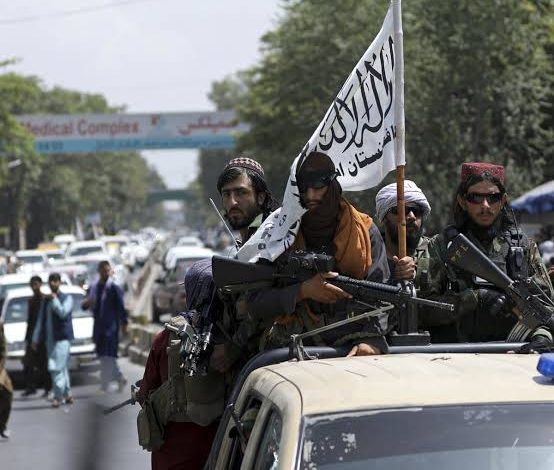By the Socialist Appeal Editorial Board
For most of the post-war period the Pacific region was treated like a United States lake. As the colonial territories of Australia, France, New Zealand, the United Kingdom and the United States became independent between 1962 and 1994 they tended to side with the Western powers, with the exception of Vanuatu.
Decades of nuclear testing and the devastating impact upon the environment and indigenous peoples, many of whom were forcibly resettled so their island homes could be used for nuclear testing, and the lack of any serious investment from their former colonial masters helped create a sense that they were being ignored unless it was time to back the United States in the United Nations.
With the end of the Cold War the People’s Republic of China (PRC) began to expand its influence through the Pacific region by providing countries, such as Samoa and Tonga, with loans to build infrastructure and other projects. They have connected electricity supplies to remote villages, built roads, expanded and improved airports and upgraded ports. In return, the PRC has requested berthing rights for their naval ships, the establishment of weather stations and other facilities in these countries and even the right to fish in their territorial waters.
It’s easily forgotten, especially in Europe, that although the land areas of these Pacific island countries are small (the largest country in the Pacific region – New Zealand – is slightly larger than the United Kingdom) they cover vast expanses of ocean. This is important for both economic and geopolitical reasons.
▲ Political map of the Pacific island countries. Note the large areas of ocean they cover.
These countries have vast areas of lucrative fishing grounds that are helping to feed millions of people in the PRC. Their sheer size also means that any deal to permit the PRC to establish anchorage rights for their navy in any one of these countries could potentially give them a huge swathe of the Pacific where their navy can operate almost with impunity. Nor surprisingly, the United States is very concerned about this development. So, too, are Australia and New Zealand.
The loans being given to these Pacific island nations have also encouraged many of them to cease recognising the Republic of China (Taiwan) and to recognise the PRC. More importantly, these nations are being put under pressure to support resolutions put to the United Nations by the PRC.
The trade war between the PRC and the United States has also put many of the Pacific island nations and Australia in an awkward position. Around 32.6% of Australian exports (in the 2018-2019 fiscal year) and 26.0% of New Zealand exports (as of March 2021) were to the PRC.
Criticisms of human rights violations in Hong Kong and the Xinjiang Uygur Autonomous Region by both Australia and New Zealand has led to some retaliations, such as boycotts of primarily luxury goods like wine and claims certain New Zealand dairy products have been contaminated, but trade in minerals, precious metals and timber (among other things) still continue with no tariffs on either side.
In April 2008 New Zealand and the PRC signed a free trade agreement: the first signed between the PRC and a developed country. Thus far, the free trade agreement has held firm despite the above-mentioned disagreements.
However, New Zealand has been criticised by conservative bourgeoisie critics in Australia and New Zealand of being too cosy with the PRC to the extent that it’s compromising the Five Eyes intelligence alliance of Australia, Canada, New Zealand, the United Kingdom and the United States: a claim strongly rejected by the New Zealand government.
With the announcement of the AUKUS security pact on September 15th, 2021, between the governments of Australia, the United Kingdom and the United States
these critics claimed that New Zealand had been snubbed by its Five Eyes allies. Little mention has been made of the fact that Canada was also excluded from the pact.
This pact is really nothing more than a few Imperialist powers trying to reassert their authority in a region that has all too often been ignored in the past.
We have no delusions about the intentions of either the PRC or the AUKUS pact nations.
Imperialism in the 21st Century doesn’t always come in the form of white people waving the flags of predominantly white nations. Although the PRC is the most prominent non-white country to be expanding their economic, military and political clout the Japanese and Taiwanese have also been asserting themselves. For example, it was the Japanese who rebuilt the port of Apia in Samoa so that bigger ships could use its harbour.
It’s also important to point out that, on top of the economic and social problems caused by imperialism in the 20th Century, many Pacific Islands now potentially face complete annihilation due to climate change.
Nothing will be gained by swapping Western imperialism for a Chinese version. Real freedom will only come from our people uniting in the struggle against capitalism. For a Socialist Federation of Oceania!

